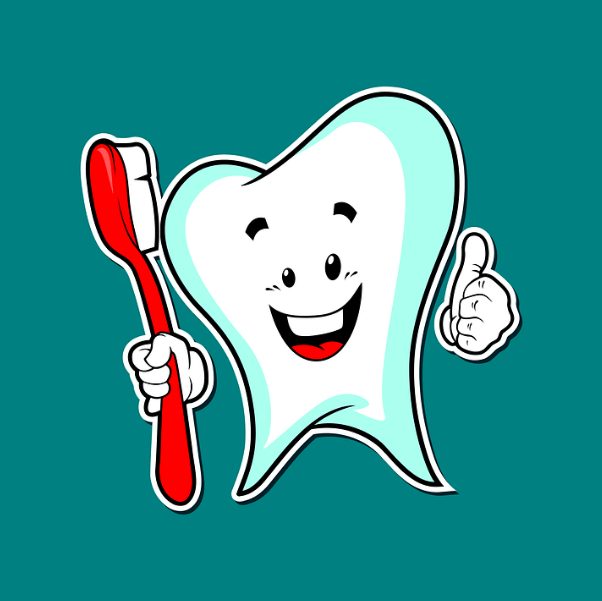Having good oral health is essential in maintaining healthy teeth and gums. Habits like brushing twice per day are an excellent example of a good oral hygiene routine.
However, oral health is not just about gum disease and cavities; research found an association between dental health and overall health. As a result, experts recognize dental health problems as a global health burden.
Without having it treated, gum problems or tooth decay may lead to tooth loss, pain, and self-confidence issues. These concerns can lead to speech problems, malnutrition, and other challenges in an individual’s personal life, work, or school.
People can prevent these issues with proper oral health care at home and at the dentist’s office. Other than brushing two times a day, here are more dental health tips and practices that you still may not know.
Brush Your Teeth Regularly But Not Aggressively
Most people know that brushing their teeth two times a day is essential for keeping teeth clean and removing bacteria and plaque. However, the correct technique is needed to brush your teeth effectively.
You should move your brush in small circular motions, making a point of brushing the front, top, and back of each tooth. This process may take 2 to 3 minutes. Also, it’s best to avoid the sawing back-and-forth motions.
Using hard-bristled toothbrushes or brushing too hard may damage your tooth enamel and gums. The consequences may include gum erosion, tooth sensitivity, and permanent damage to your teeth’s protective enamel.
The American Dental Association (ADA) recommends using a toothbrush with soft bristles. They also suggest to should change your toothbrush every three months or when the bristles start looking frayed, whatever comes first.
Floss Everyday
Flossing can extract bacteria and plaque from between your teeth, where your toothbrush can’t reach. It can also aid in preventing bad breath by dislodging food and debris trapped between your teeth.
Although there are not many long-term studies to prove that flossing can benefit you, the ADA still recommends it. The CDC also affirms that people must floss their teeth.
Dental health professionals suggest pushing the floss down gently to the gumline before hugging the tooth’s side, making up-and-down motions. It’s vital to avoid flossing up and down between your teeth in a snapping motion, as it may cause pain and won’t eliminate the plaque effectively.
Use Fluoride
Fluoride is from an element called fluorine that many experts believe to prevent cavities and is a common ingredient in mouthwash and toothpaste. However, not all dental products contain fluoride, and some don’t use it.
According to evidence, a lack of fluoride may lead to tooth decay, even if you take care of your teeth. A recent study found that flossing and brushing don’t prevent someone from getting cavities if they don’t use fluoride.
Try a Mouthwash
Studies found that certain mouthwashes have positive effects on oral health. For instance, one review discovered that mouthwash with an antibacterial ingredient named chlorhexidine helps control gingivitis and plaque. Also, mouthwashes with specific essential oils are effective, based on a meta-analysis.
You can ask your dentist which mouthwash is the best for your personal need. Mouthwash can’t substitute flossing and brushing, but it can be complementary to these practices.
Mouthwashes that can help with dental problems and bad breath are available online.
Drink Water and Not Sugary Drinks
Sugar-sweetened drinks are the primary source of added sugar in the regular diet of some people. Drinking juice, soda, or other sugary beverages can lead to more risk of cavities.
The ADA recommends drinking unsweetened tea or water throughout your day and only drinking sugary drinks in small volumes during mealtimes.
Limit Starches and Sugary Foods
Eating sugar can cause cavities. Studies proceed to emphasize the vital role sugar plays in adverse oral health outcomes. Usual culprits include desserts and candy, but lots of processed foods also have added sugar.
The World Health Organization (WHO) suggests people limit their sugar intake to below 10% of their daily calories. A systematic review found that decreasing this to 5% would lessen the risk of cavities and other dental problems more.
Experts also affirmed that starchy foods like chips, crackers, pasta, and bread could result in tooth decay. The ADA says that these foods stay in your mouth and split down to simple sugars, which the acid-producing bacteria feast on. This acid can cause your tooth to decay.
The ADA recommends that instead of eating starchy food, consuming many fiber-rich fruits and vegetables and dairy products with no added sugar.
Avoid Smoking
Smoking is harmful to your body’s immune system, making it tough to heal tissues, especially those in your mouth. Smoking is defined by the CDC as a risk factor for gum diseases, while the ADA cautions that those who smoke may heal slowly after their dental procedure.
Additionally, smoking affects the mouth’s appearance and may lead to yellowing of the tongue and teeth. It can also give you foul breath.

